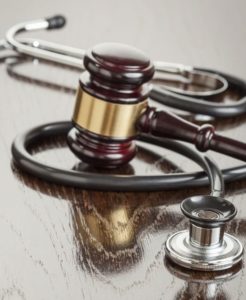
If the negligence of a medical professional or facility caused harm to you or someone you love, you may be considering a medical malpractice lawsuit. The testimony of a medical expert is a critical component in the vast majority of medical malpractice cases, as these medical professionals can explain the specific decisions made by treating healthcare providers, why their actions failed to meet the acceptable standard of care, and how this negligence precipitated patient harm. When pursuing medical malpractice litigation in New Jersey, selecting the right medical expert is a complex and extremely important task. Case law has established certain standards for medical experts in medical malpractice cases. So who can testify in your medical malpractice case?
Expert Testimony for a Medical Malpractice Claim
When positioning a medical malpractice case for the best chance of success, the medical expert role must be filled by the most knowledgeable and well-equipped specialist in a given area. The rules regarding expert witnesses became more stringent in 2013, when the New Jersey Supreme Court ruled unanimously that an expert witness must practice in the same specialty as the defendant medical professional named in a lawsuit.
This landmark case involved Edward Nicholas, a contractor who sought treatment for carbon monoxide poisoning at South Jersey Healthcare Regional Medical Center in Vineland. Nicholas had been operating a gas-powered saw in a basement. He was treated by an emergency room doctor and family medicine physician, who determined a treatment plan involving 100 percent oxygen and medication.
After Nicholas sustained brain damage, he filed a medical malpractice lawsuit against the doctors for negligence. The expert witness who testified on his behalf, Lindell Weaver, was an internist with a subspecialty in hyperbaric medicine. An internist is also known as an internal medicine or general medicine physician. In other words, this expert witness did not specialize in emergency or family medicine. However, she was an expert on hyperbaric oxygen as a treatment for carbon monoxide poisoning.
Although Weaver testified that Nicholas should have been treated with oxygen in a hyperbaric chamber, the New Jersey Supreme Court ruled that he could not testify as to the conduct of a doctor practicing in a different specialty. This ruling represents a strict interpretation of the Patients First Act (N.J.S.A. 2A:53A–41), which requires a plaintiff’s medical expert to “have specialized at the time of the occurrence that is the basis for the [malpractice] action in the same specialty or subspecialty” as defendant physicians.
The decision in Nicholas v. Mynster SJH Stihl established a standard for all of the medical malpractice cases that came after it: a medical expert cannot evaluate the standard of care exercised by a doctor who specializes in a different area of medicine. Essentially, it precludes expert testimony on a breach in the standard of care from a medical professional without the same experience and credentials as the allegedly negligent medical professional the claim is brought against.
Finding the the Right Medical Expert for Your Lawsuit
The aforementioned case is just one example of the many factors that influence medical expert selection for a specific medical malpractice claim. Subsequent precedential cases have established further standards. For instance, in 2017, a New Jersey Appellate Court ruled that a treating physician cannot offer expert opinion as to the standard of care in a medical malpractice case involving one of their patients. In this case, Granovsky v. Chagares, the Appellate Court decided that a treating physician’s testimony should be limited to the facts of the case and should not expand to the conduct of another doctor or medical professional who supposedly failed to provide adequate care.
With so much to consider when determining the most suitable medical expert for a medical malpractice claim, this work is best left to an experienced medical malpractice attorney. At Fronzuto Law Group, our New Jersey medical malpractice lawyers have extensive experience identifying the right medical experts for a specific medical malpractice lawsuit. We call upon our vast network of medical experts to accurately and effectively illustrate the ways in which doctors, nurses, other healthcare providers, hospitals, and medical facilities breached the standard of care causing clients’ injuries.
If you suspect medical negligence caused you or a loved one harm, call us today at 973-435-4551 for a free consultation or contact us online for more information.

